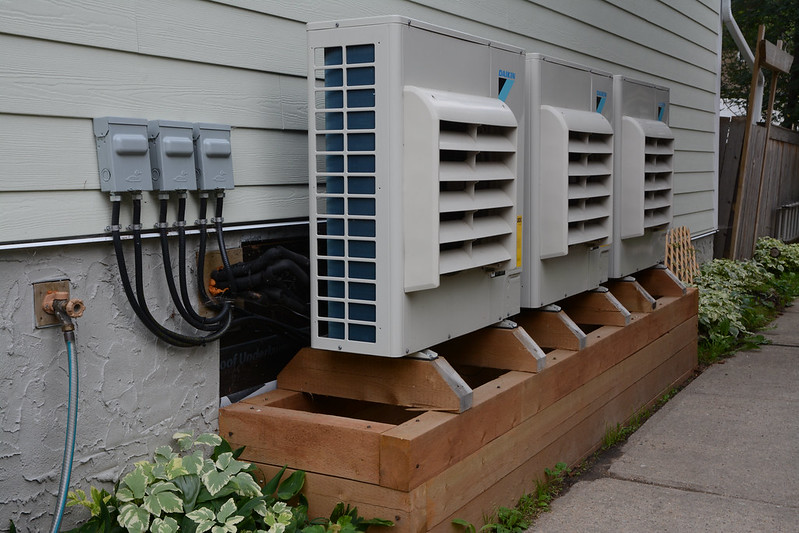Betsy Agar, director of the Buildings program at the Pembina Institute, made the following statement in response to the Government of British Columbia’s expanded heat pump program announcement:
“We welcome today’s announcement from the Governments of Canada and British Columbia that will lower home heating and cooling bills across the province. Environment and Climate Change and Natural Resources announced a federal investment up to $103.7 million from Canada’s Low Carbon Economy Fund and the Oil to Heat Pump Affordability (OHPA) program to support climate action in B.C. and help people with low or middle incomes reduce their energy costs. An investment up to $151 million from the Province of British Columbia was announced toward this initiative.
“Affordable housing isn’t affordable unless it’s affordable to heat and cool, energy-efficient, and climate-safe. Given our twin housing and climate crises, B.C. is showing real leadership in making sure homes are affordable, healthy, safe and resilient to extreme weather.
“Deep retrofits are the only climate actions that ensure Canadian homes are healthy, safe, resilient to extreme weather, and affordable to heat and cool. We know that 80 per cent of 2050 buildings have already been built and most are not ready for coming climate extremes. Holistic deep retrofits that include heat pumps – which both heat and cool buildings – and upgrades to insulation, air sealing and ventilation drive down carbon emissions but also ensure homes stay warm in the winter and cool in the summer when opening windows is not an option. Impacts of power outages and extreme temperatures are minimized by making homes and buildings energy efficient. Shifting away from business-as-usual upgrades to deep retrofits provides a benefit-rich pathway to decarbonization, adaptation, and economic development.
“The programs will improve affordability by improving energy efficiency and lowering monthly utility costs. Households that switch from fossil fuels to electric heat pumps for space heating can see energy savings of as much as 80 per cent.
“It’s estimated that approximately 20 per cent of Canadian households experience energy poverty. Heating and cooling expenses continue to escalate across the country, pushing the cost of living further out of reach for many Canadians. Recent modeling from the Pembina Institute estimates an average annual investment of $2.8 billion from 2025 to 2050 is needed from federal and provincial governments and utilities to provide zero cost retrofits for low-income households living with energy poverty.
“Today’s announcement demonstrates leadership in building a clean economy by facilitating 16,000 retrofits in low- and middle-income households. It serves as an example for other provinces to contribute to planning for Canada’s buildings—the third largest contributor to the country’s emissions—to achieve net-zero carbon emissions by 2050. We look forward to seeing a suite of tools and mechanisms built into the much-anticipated Canada Green Buildings Strategy.
“B.C. is demonstrating how other provinces and utilities can unite to demonstrate similar leadership and support the transition to a clean economy, which will provide affordable heating and cooling, good jobs, and address climate change while safeguarding Canadians.”
Pembina Institute experts are available for media interviews upon request.
[30]
Contact
Sarah Snowdon
Senior Communications Lead, Pembina Institute
416-838-3423




